The hype is over. 2025 is a fresh start for the AI industry. We’re moving from flashy demos to real systems that show their value in the field. The aim is clear: create tech that actually drives business results, not just gets applause.
Companies are being practical now. They want AI that works reliably, scales up easily, and brings real value. Fancy prototypes just don’t cut it anymore.
The market favors those who create tools that help make decisions, tailor experiences, and reveal insights from previously unused data. The new generation of AI firms understands this reality.
They’re engineers who translate complexity into systems that work quietly but reliably. That’s why in this blog post, we are going to cover the top seven companies that stand out because they deliver exactly what users want and provide valuable insights to the readers.
Let’s begin!
Key Takeaways
- Understanding the real impact of Geniusee
- Looking at the data science integration capabilities of InData
- Uncovering the enterprise AI solutions of Avenga
- Decoding the modern business solutions offered by Euristiq
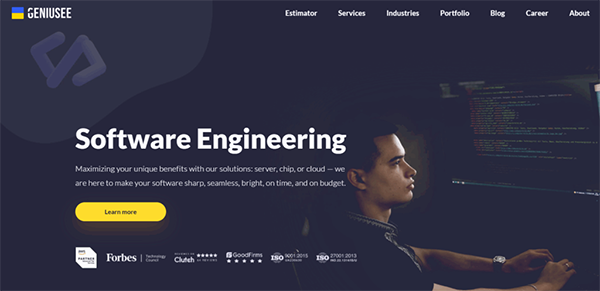
Geniusee develops AI that works in the real world. Their full-cycle development model covers everything from concept to deployment and long-term support, ensuring that systems remain stable after the demo phase. The company’s AI strategy prioritizes production readiness and measurable results over polished prototypes.
Their expertise is showcased through https://geniusee.com/artificial-intelligence, where Geniusee presents scalable AI solutions powered by MLOps and generative technologies. The team specializes in fintech, healthcare, and education, industries where precision and compliance are critical to success. Key strengths include:
Geniusee’s background in complex, high-stakes environments shows they understand what it takes to turn AI into real business value.
Interesting Facts
Generative AI alone received $25.2 billion in investments in 2023, an eight-fold increase from the previous year.
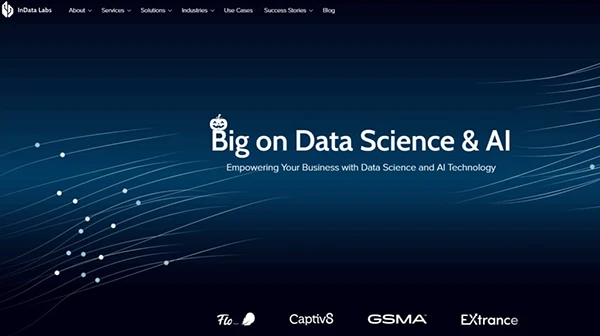
InData Labs operates with the precision of a research lab and the practicality of a Fortune 500 technology department. Their own AI research and development center is not for show. It’s where models are pressure-tested before they ever touch client data. These people thrive on predictive analytics and computer vision challenges that keep others awake at night.
They’re the quiet experts you call when your data is a jumble, but you know there’s gold hidden inside. Their NLP work particularly stands out for its linguistic subtlety. Their NLP work stands out for its precision and real-world applicability, showing they understand how businesses actually use language.
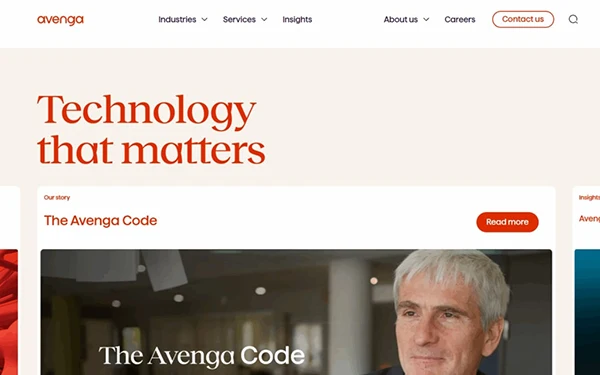
Avenga operates on a different magnitude. We’re talking about global enterprise transformations where the stakes are high and legacy systems are notoriously complex. They don’t just add AI features. They rebuild organizational nervous systems. Their work in insurance and healthcare proves they can deliver under serious pressure.
Their enterprise projects follow a consistent pattern of scale and technical accuracy. The strengths of the company include:
What sets Avenga apart is their refusal to treat AI as a separate function. They weave it into every layer of operations until the technology feels less like an addition and more like a natural evolution of the company’s core systems.
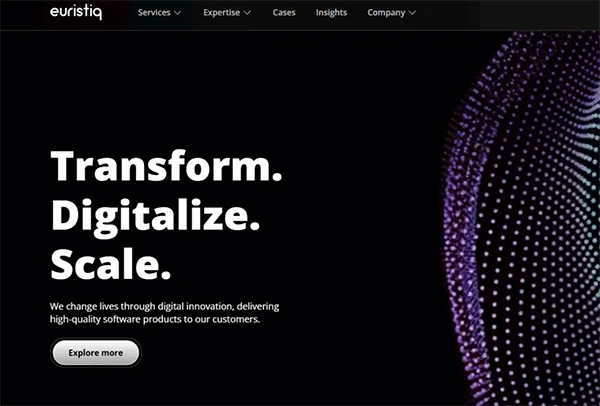
Euristiq brings AI down to earth. They’re the opposite of academic over-engineering and focus entirely on real-world outcomes. Their speciality is integrating AI into the complex reality of existing infrastructure. They pinpoint where intelligence delivers immediate operational value, whether in IoT devices, logistics networks, or manufacturing environments.
Euristiq stands out for its hands-on approach to digital transformation. The company helps clients achieve visible ROI through AI systems built for scalability and efficiency. They know how to simplify complex architectures without losing technical depth. It’s a rare balance in this space.
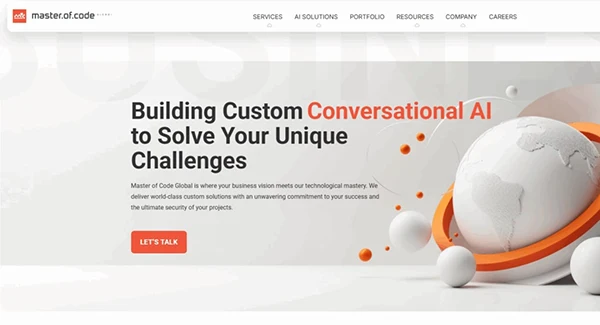
Master of Code builds AI that actually talks like a human. Not the frustrating chatbots that drive customers away, but conversational systems that understand context, nuance, and when to transfer to a real person. Their technology reshapes how businesses communicate with their audiences.
The company focuses on three core areas that define next-generation customer engagement:
Their projects in retail and customer support show that the best AI doesn’t feel like technology at all. It acts like a capable assistant, assisting people rather than getting in the way.
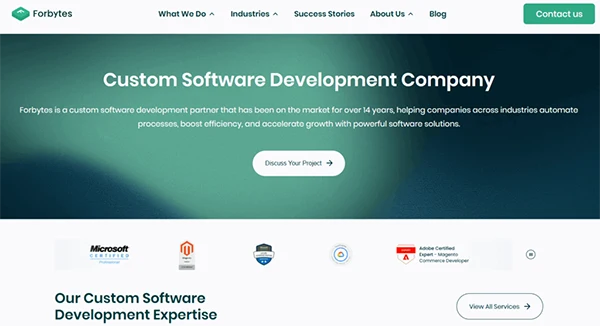
Forbytes takes a results-first approach to AI. Their goal is straightforward: create technology that drives business metrics in the right direction. They create recommendation engines that actually drive sales, predictive models that accurately forecast demand, and personalization tools that customers can feel throughout every interaction.
The company stands out in digital commerce, where every outcome is measurable. There are no vague promises about potential, only visible improvements in conversion rates and customer lifetime value. Internal data shows that their long-term e-commerce partnerships consistently outperform market averages.
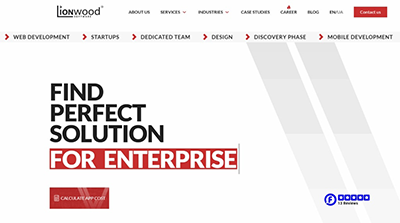
Lionwood combines startup agility with enterprise-level precision. They’re the team you call when you need to validate an AI concept quickly without compromising on quality. Their agile process enables them to turn ideas into working prototypes faster than most companies can initiate a project.
The company focuses on delivering speed and functionality via
Lionwood shows businesses what AI can achieve today, not years down the line. Their work balances technical depth with usability, proving that advanced systems don’t have to be complicated to be effective.
Let’s be honest. The free ride is over. The hype wave that once propelled every AI startup into the spotlight has finally subsided. Buzzwords and demo reels are no longer sufficient to impress businesses. They expect AI to pay for itself, improve efficiency, and seamlessly integrate into the systems they already use.
The selection process has become ruthless. Businesses now measure AI not by how futuristic it looks, but by how well it performs on Monday morning when things get messy. Tools that can’t handle scale, security, or compliance are being pushed aside. What’s left are serious players who understand that reliability, explainability, and integration matter more than shiny interfaces.
This shift has subtly transformed the industry. The most successful AI partners of today don’t behave like vendors. They work as long-term collaborators who understand the balance between innovation and stability. They know how to make AI work in the real world, not just in controlled environments or investor presentations.
Choosing an AI partner in 2025 feels more like selecting a business spouse than a vendor. You are committing to someone who will help you navigate the inevitable challenges. The companies we’ve mentioned take various approaches to this collaboration, ranging from Geniusee’s full-cycle ownership to Lionwood’s agile experimentation.
What unites them is their rejection of AI theater. They build systems that work when the investors leave the room and the quarterly reports come due. In an industry still crowded with promises, these seven deliver something increasingly precious: results you can bank on. And honestly, that’s what actually matters now.
It includes crucial counterparts like explainability, bias and fairness, reproducibility, sustainability, and transparency.
According to various experts, it is predicted that by 2050, AI will have the potential to profoundly enhance human capabilities and address global challenges.
This category includes concepts like Computation, Cognition, and Communication.
